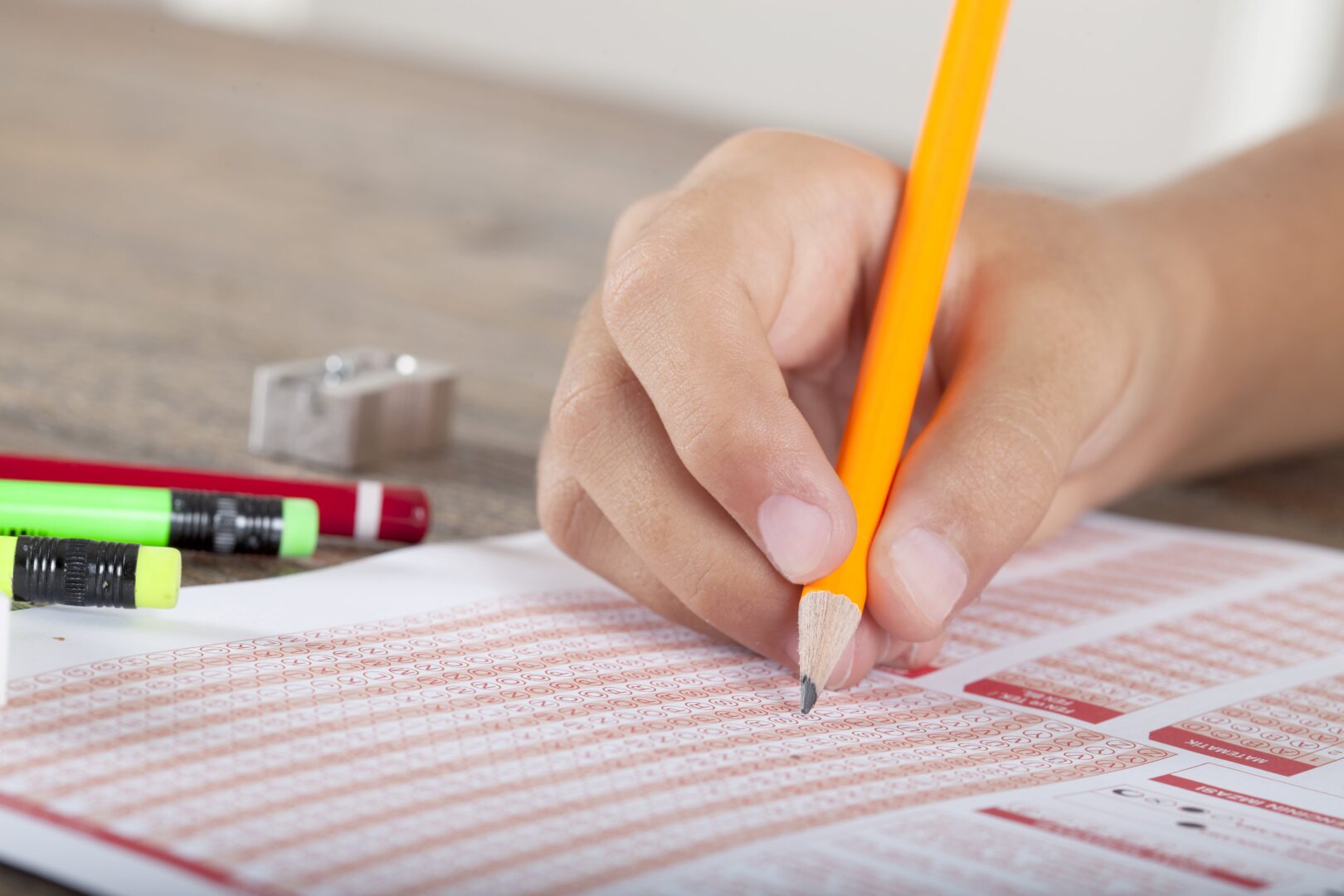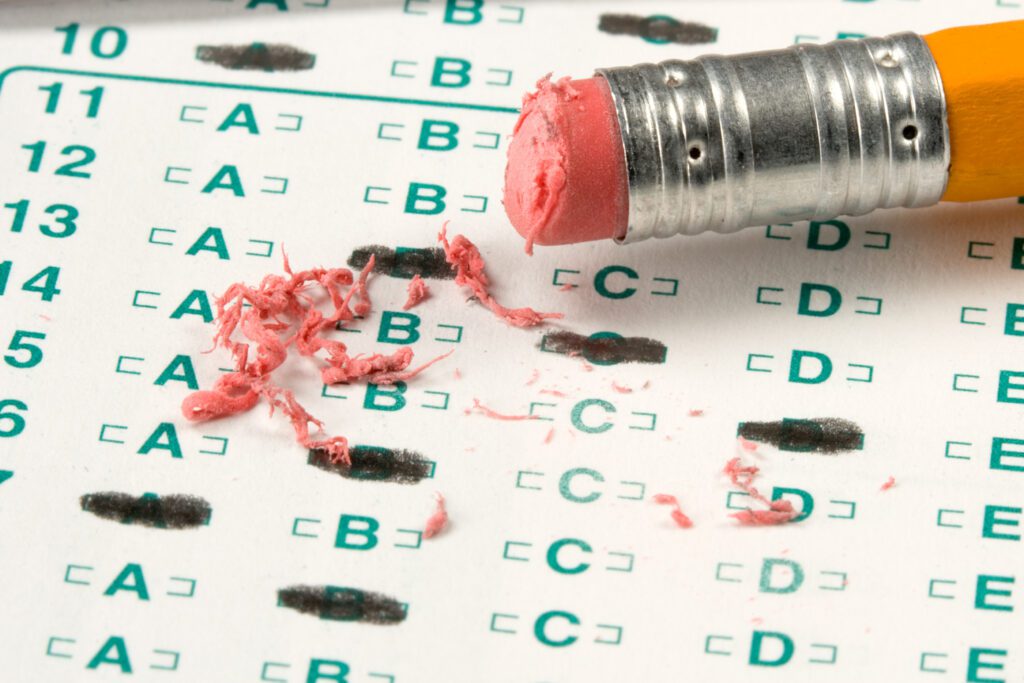There’s a lot of pressure for students to perform well on the SAT and ACT exams.
That’s because each test measures the skills at the heart of education which students need to succeed in college. These exam scores strongly influence which schools and programs may accept your teen, what scholarships they’re eligible for, and other future opportunities.—so it’s important students know what to expect and prepare effectively.
In fact, doing well on the test isn’t about being lucky; it’s about proper preparation.
Read on to learn more about the SATs and ACTs, what’s to be expected on each exam, and how your teen can prepare.
What The Exams Will Be Like
Before The Exam
Going into the SATs or ACTs, your teen will likely feel some anxiety. They may feel nervous energy in the room and have a hard time relaxing. That’s completely normal—it doesn’t mean they are unprepared or going to do poorly.
Remind your teen they have prepared for this! Encourage them to take deep breaths and remind themselves that they are prepared and ready.
Entering The Exam
After signing in and entering the testing room, your teen will take a seat. Next, they will spend some time filling out identification forms before the proctor explains the rules of the exam and answers any questions.
While Taking The Exam
Your teen should not flip through the question booklet or skip ahead while taking the exam—students must stay on the section being working on. If a proctor sees your teen jumping ahead, they can cancel your teen’s score.
After Finishing The Exam
Once your teen is finished, they must wait for permission to leave. After leaving the testing room, it’s important to not discuss exam questions with others in person or online. The Collge Board may cancel scores if a student shares questions, so your teen should keep test questions to themselves.
What Students Should Bring To The SATs and The ACTs.
There are a few items that are mandatory to bring in order to write the test and others that will be helpful to bring.
Mandatory Items To Bring
- Fully charged device with bluetooth
- Printed or digital Admission ticket
- Photo ID that meets requirements
- Pencils: optional for SAT but can be useful for scratchwork
- No 2 pencils for the ACT
- Calculator that meets requirements
Helpful Items To Bring
- Snacks and water ( only for breaks during the exam)
- Extra pencils
- Extra calculator batteries–Bonus: double check it complies with SAT regulations)
- A watch (smart watches not allowed!)
What to Expect From The SAT
The current digital SAT lasts for two hours and 14 minutes with the 10 minute break. There are two main sections: Reading & Writing combined, and Math. The exam is scored on a scale of 400-1600. with two sections of 200–800 each
Reading & Writing Combined
The reading & writing section of the SAT has 54 short reading passages, each followed by a single question. This section is split into two modules that includes a mix of skills: vocabulary, grammar, sentence structure, and reading comprehension.
Content types include:
- Classic or contemporary literature
- U.S. founding documents or texts from the Great Global Conversation
- Social science
- Science (e.g., biology, chemistry, physics)
Math
The SAT Math section allows the use of a calculator throughout. There is a built-in Desmos-style graphing calculator is available on-screen during the test. Math questions focuse on four main areas:
- Algebra (linear equations, inequalities, etc.)
- Advanced Math (nonlinear equations, functions)
- Problem Solving and Data Analysis (ratios, percentages, data interpretation)
- Geometry and Trigonometry (though less emphasized than Algebra)
What to Expect From The ACT
Students will have 125 minutes (or 2 hrs 05 min) to complete the exam. The optional Science portion adds 40 min for a total 165 min. The optional Writing portion adds 40 min for a total of 205 min.
Students’ composite scores averages only English, Math, and Reading, with Science/Writing reported separately.
The exam is scored on a scale of 1–36.
ACT Section Details:
English: 50 questions in 35 minutes (focus on rhetoric and grammar).
Math: 45 questions in 50 minutes (algebra and trigonometry, four-choice items).
Reading: 36 questions in 40 minutes (fiction, social studies, humanities, natural science passages).
Science (optional): 40 questions in 40 minutes on data/graph interpretation and scientific reasoning.
Writing (optional): One essay analyzing different perspectives on an issue.
The SATs and ACTs Are About Proper Preparation
For students, the trick to doing well on these standardized tests is taking the time necessary to prepare. That means they should prepare a study schedule before they begin to study.
Many parents also choose to enroll their teens in an exam preparation course. GradePower Learning offers SAT and ACT preparation courses that provide students with the tools to achieve the scores they want.
Related Resources
How To Study For The SAT & ACT Exams
How To Overcome Test Anxiety
How To Stop Procrastinating And Start Studying
This post was originally published in 2019. However, it is updated for 2025.





